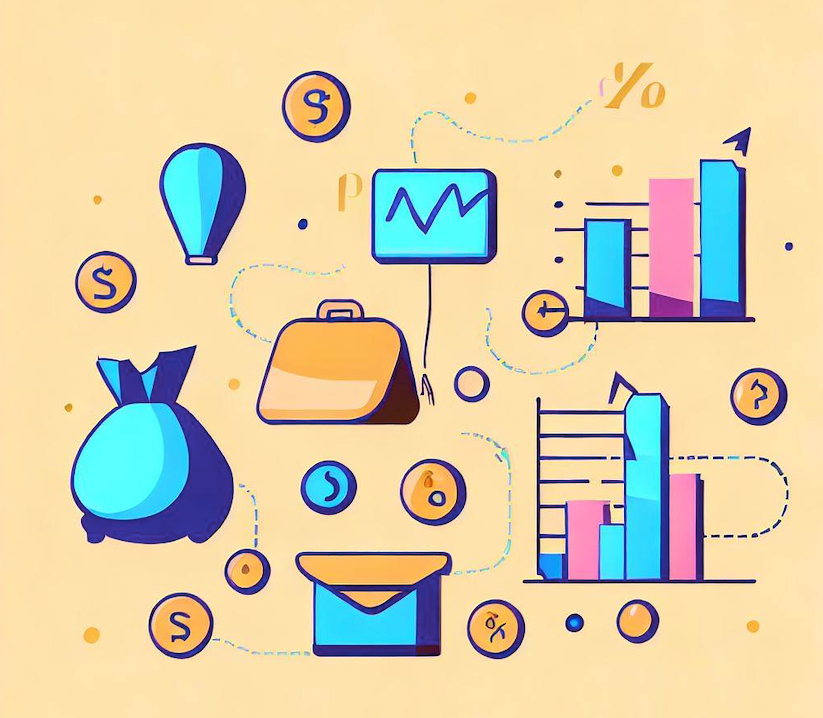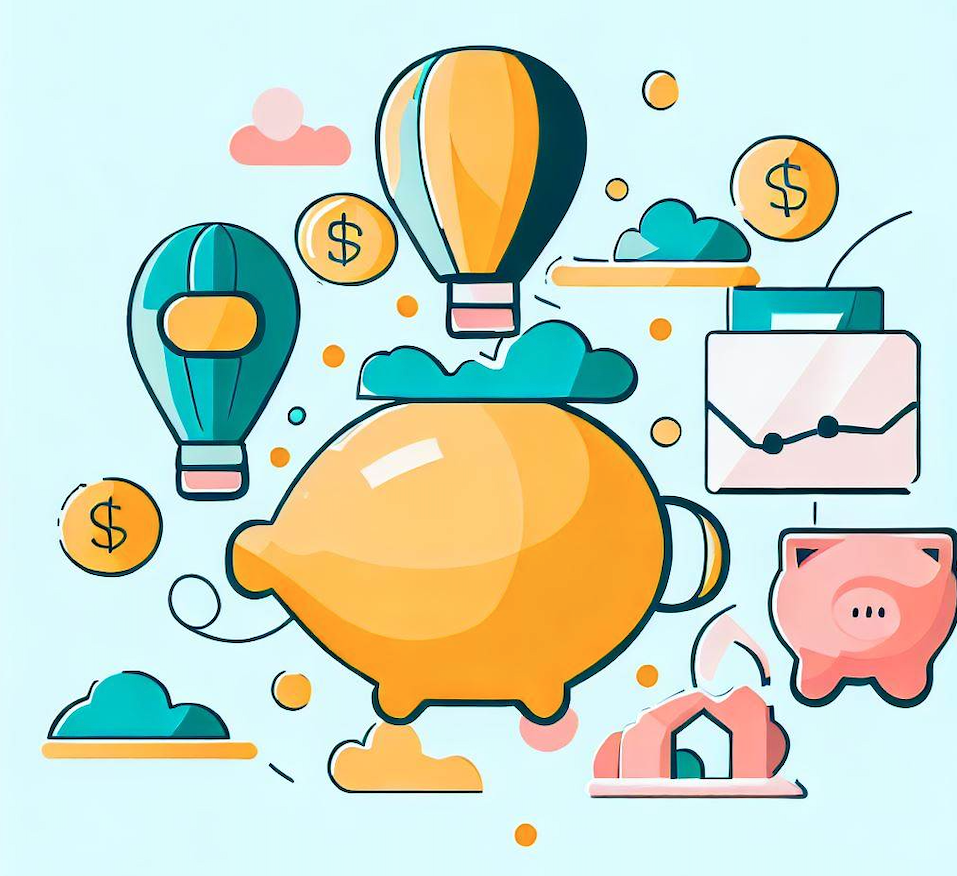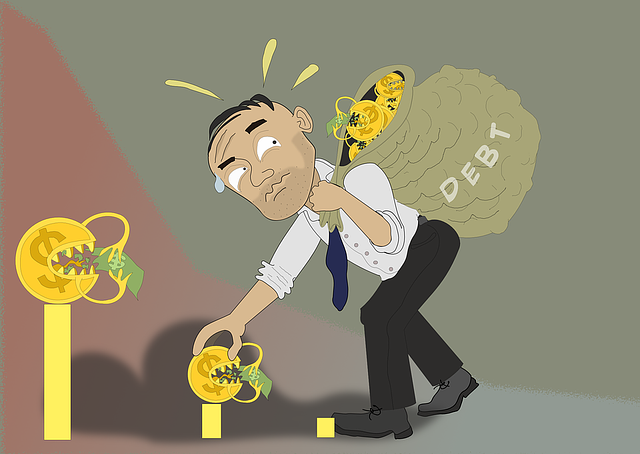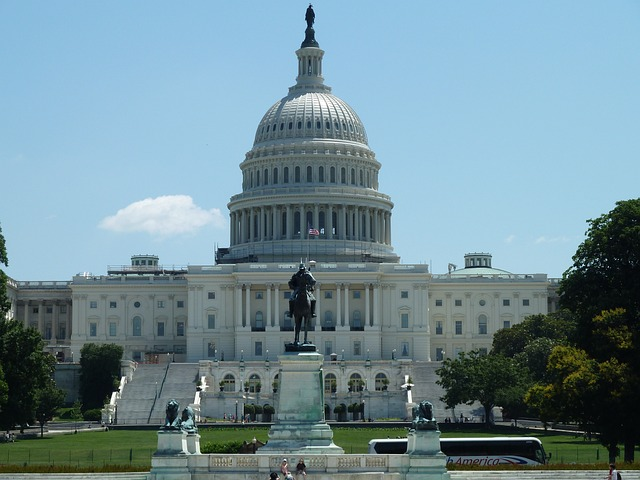Inflation can greatly impact your financial life. It affects your earnings, expenditures, savings, investments, and debts, whether you realize it or not.
It’s a significant and influential factor in financial strategy that should not be ignored.
But what exactly is inflation and how does it work? how it occurs, and methods for measuring and controlling it?
Additionally, what steps can be taken to protect one’s wealth from the effects of inflation?
This post will answer various questions about how inflation impacts you.
It covers, its impact on income, expenses, savings, investments, and debt.
Additionally, it provides suggestions on how to manage inflation. By the end, you will have a clearer understanding of inflation and how it can affect your financial future.
- Related Reading:
- 11 Best Apps That Pay You Real Money in 2023
- Download our free E-book today and start learning how to create wealth for yourself!
- If Are you struggling with low energy try Liv Pure today and see the difference for yourself.
How Inflation Affects Your Income

Inflation can impact your income in two ways: nominal and real.
Nominal income is the amount of money you receive in today’s dollars, while real income is the amount of money you receive in dollars that have the same purchasing power as in a base year.
Your income increases at the same rate as inflation, your purchasing power remains constant.
But if your income increases at a lower rate than inflation, your actual purchasing power decreases.
If inflation rises and your nominal income stays the same, then you will be able to purchase fewer goods and services than you could before.
However, if your nominal income rises at a faster rate than inflation, then your real income will increase.
This will allow you to purchase more goods and services than you previously could.
Maintain or improve your standard of living, it’s important for your income to increase at a faster rate than inflation.
You can achieve this by negotiating for higher wages, seeking career advancements, acquiring new skills or credentials, or exploring additional sources of income.
- Related Reading:
- The Ultimate Guide to Investing for Retirement
How Inflation Affects Your Expenses

The money you spend on goods and services for your needs and wants is your expenses.
Inflation has the ability to raise the cost of living, which is the amount you need to spend to maintain a certain level of consumption.
The expenses needed to maintain your level of consumption depend on your location and what you consume.
Inflation can increase the cost of living by making some goods and services more expensive than others.
For example, food and energy prices tend to rise faster than other prices during inflation. This means that you need to spend more money on these items to maintain your consumption.
Inflation can also increase the cost of living by changing your consumption patterns. For example, if you travel less or switch to cheaper alternatives due to higher prices, then you may reduce your quality of life.
In order to handle increasing costs, it’s important to be smart about how you manage your budget.
This involves keeping a close eye on your spending habits, giving priority to your needs over your wants, eliminating any unnecessary expenses, searching for better deals, and exploring ways to save money.
- Related Reading:
- Can I Sell My House If It Is in Foreclosure?
- The Ultimate Guide to Passive Income
- 50 Powerful AI Prompts for Any Subject Category or Niche
How Inflation Affects Your Savings

Your savings are the amount of money you set aside for future use. Inflation can affect your savings by eroding their value over time.
amount of money you have saved and the return adjusted for inflation determine the overall value of your savings.
The nominal amount is the amount of money you have in terms of current dollars, while the real return is the interest rate you earn on your savings account minus the inflation rate.
If the real return on your savings is positive, then your savings grow faster than inflation.
This means that you can buy more goods and services in the future than now.
However, if the real return on your savings is negative, then your savings grow slower than inflation.
This means that you can buy less goods and services in the future than now.
Therefore, to preserve or increase the value of your savings, you need to choose saving options that offer higher actual returns than inflation.
You can do this by comparing different saving products such savings accounts as bank accounts, certificates of deposit (CDs), or money market funds; diversifying your saving portfolio across different currencies or countries, or investing some of your savings in assets that appreciate during inflation such as stocks or real estate.
- Related Reading:
- How Rakuten Can Make You Rich
- Airbnb Collapse: Could It Trigger a Housing Market Crash?
How Inflation Affects Your Investments

Your investments are the amount of money you put into assets that generate income or appreciate in value over time.
The return on an investment is the amount of money you gain or lose from it over a period of time expressed as a percentage of its initial value.
The risk of an investment is the uncertainty or variability of its return.
Inflation can affect the returns and risks of different types of investments differently depending on their characteristics such as duration (how long they last), liquidity (how easily they can be sold), and inflation protection (how well they adjust to inflation).
For example, bonds are fixed-income investments that pay a fixed amount of interest and principal over a certain period of time.
Bonds have low liquidity and low inflation protection, which means that they lose value during inflation.
Stocks are equity investments that represent ownership shares in a company. Stocks have high liquidity and high inflation protection, which means that they gain value during inflation.
Therefore, to optimize your investment performance, you need to adjust your investment strategy according to the inflation environment.
You can do this by analyzing the inflation trends and expectations, diversifying your investment portfolio across different asset classes, sectors, and regions, or choosing investments that hedge against inflation such as Treasury inflation-protected securities (TIPS), gold, or commodities.
- Related Reading:
- How Rakuten Can Make You Rich
- Airbnb Collapse: Could It Trigger a Housing Market Crash?
How Inflation Affects Your Debt

Inflation can affect your debt by altering its real value and cost.
The real value of your debt is the amount of money you owe in terms of constant dollars that have the same purchasing power as in a base year.
The cost of your debt is the interest rate you pay on your debt plus any fees or charges.
If your debt has a fixed nominal value and a fixed interest rate, then inflation can reduce its real value and cost.
This means that you can repay your debt with fewer interest payments and less money in the future than now.
However, if your debt has a variable nominal value and a variable interest rate, then inflation can increase its real value and cost.
means that inflation will cause the amount of money you need to repay your debt in the future to be higher than what you borrowed initially.
Therefore, to manage your debt effectively, you need to consider the impact of inflation on your debt obligations.
To better manage your borrowing, you can consider comparing options like loans, mortgages, or credit cards.
You can also look into refinancing your existing debt to get a lower interest rate or longer repayment term. Additionally, it’s helpful to pay off high-interest debt as soon as you can.
- Related Reading:
- How to Start Investing (for Beginners)
- IRA and Simple 401(k) For Self-Employed Individuals
How Does the Government Control Inflation?

The government can use various methods to control inflation, such as:
- Price controls: The government sets limits on the prices of certain goods, which are known as price caps or floors. In order to curb wage push inflation, wage controls may also be enforced. However, these policies have not been successful in the past and have resulted in shortages, black markets, and lower-quality goods and services.
- Contractionary monetary policy: Contractionary monetary policy is a method of reducing the money supply in an economy. This is achieved by raising interest rates, which makes credit more expensive and leads to a decrease in consumer and business spending. The U.S. Federal Reserve uses this policy by implementing higher interest rates and open market operations.
- Fiscal policy: Fiscal policy is a government strategy used to manage the overall demand for goods and services. To prevent prices from rising too quickly, the government can decrease its spending and increase taxes, thereby reducing the money people and businesses have to spend and lowering their overall spending.
To measure inflation, the government compares the current prices of a specific set of goods and services to their past prices.
Consumer Price Index (CPI) is the most commonly used measure of inflation. It calculates the average price of 80,000 items that Americans commonly purchase in their daily lives.
Each month, the Bureau of Labor Statistics (BLS) conducts two surveys to collect price data: one survey records the prices of most goods and services, while the other records the price of housing.
- Related Reading:
- Strategies for Becoming a Millionaire in 5-10 Years: Tips for Building Wealth and Achieving Financial Freedom
- 11 Best Stay-at-Home Jobs for 2023: Make Money From Home
What is the Difference Between Inflation and Deflation?

Inflation and deflation are opposite phenomena of price changes in an economy.
Inflation is an increase in the price increases of the general prices of goods and services, indicated by a positive inflation rate.
Deflation is a decrease in the general prices of goods and services, indicated by a negative inflation rate.
Both can have negative effects on economic growth, depending on the causes and the extent of price changes.
That’s why central banks try to control them.
Some of the main differences between inflation and deflation are:
- Causes: Inflation can be caused by excess demand, rising costs, expansionary monetary policy, or devaluation of currency. Deflation can be caused by insufficient demand, falling costs, contractionary monetary policy, or appreciation of currency.
- Effects: Inflation can erode the purchasing power of money, reduce the real value of debt, encourage spending and investing, or create uncertainty and instability. Deflation can increase the purchasing power of money, increase the real value of debt, discourage spending and investing, or create a deflationary spiral and recession.
- Measurement: Inflation is measured by the rate of increase in the consumer price index (CPI), which is an average of the prices of 80,000 items representing what Americans buy in their everyday lives. Deflation is measured by the rate of decrease in the CPI, which indicates a negative inflation rate.
- Examples: Some examples of countries that experienced high inflation are Turkey (54.8% in 2022), Israel (15.6% in 2022), and Zimbabwe (79.6 billion in 2008). Some examples of countries that experienced deflation are Japan (-0.4% in 2022), Switzerland (-0.7% in 2015), and Ireland (-4.5% in 2009).
Final Thoughts on Inflation
Inflation is a phenomenon that affects every aspect of your financial life.
By understanding how inflation affects your income, expenses, savings, investments, and debt, you can make better financial decisions and plan ahead for your future goals.
Remember that inflation is not always bad; it can also create opportunities for growth and wealth creation if you know how to take advantage of it.
Inflation can help you make better decisions for your personal finances and finances in the long run.
By staying informed and monitoring it carefully, you can make sure your investments are properly protected from its potential risks.
You may also want to consider investing in assets that have historically performed well during periods of high inflation.
Finally, don’t forget to consider the impact of rising inflation, on your debt obligations. Keeping an eye on all these factors can help you make wise financial decisions in the long run.













